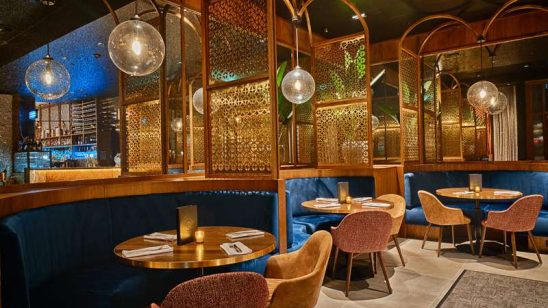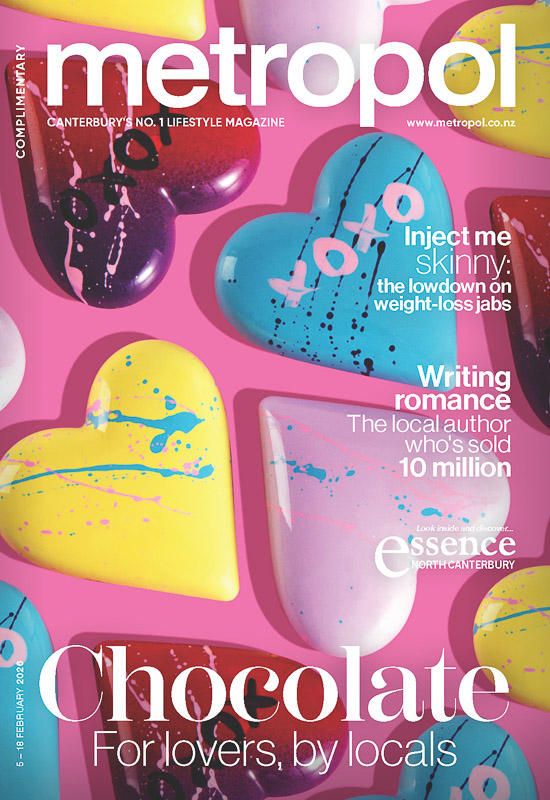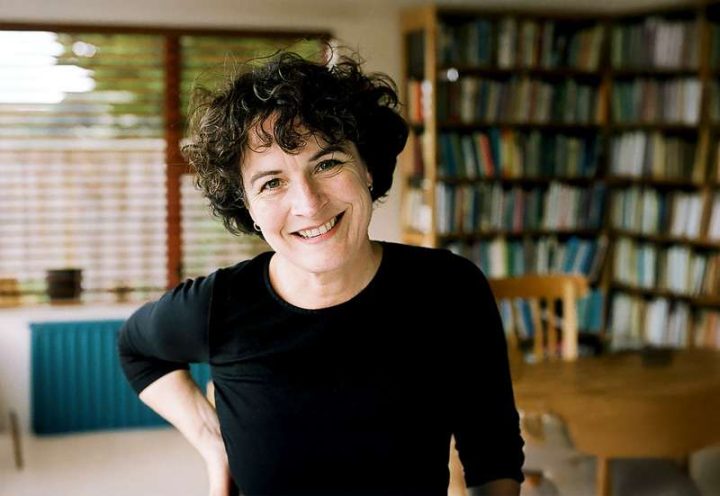
Read or rust: Novelist Kate De Goldi says books are critical to our wellbeing in an AI age
Award-winning author and Aotearoa’s new Te Awhi Rito reading ambassador Kate De Goldi says our brains are under siege – by screens, algorithms, and the distraction of ever-pinging phones. The WORD Festival guest tells Metropol deputy editor Tamara Pitelen that the solution is beautifully simple: sustained reading to rebuild attention, empathy and imagination, one book at a time.
“For me, the most frightening information is that once you ask AI to do your thinking for you, the brain starts to atrophy. If we’re not writing and reading, our brains are deteriorating.”
So says award-winning author and newly minted New Zealand reading ambassador Kate De Goldi. It’s a startling and sobering thought but the facts are that, globally, reading rates are free-falling. A trend that started when social media platforms gripped their long fingers around our collective consciousness and started to squeeze.
Kate, though, refuses to be despondent. She is speaking to me through her laptop screen. For her, visiting family in Western Australia, it’s 7am. She is in bed, propped up against the headboard with her pillow behind her. There’s nothing about Kate, though, that reflects the early hour or her location – she is fully engaged and animated as she talks about her mission – communicating the importance of reading.
“There’s an enormous body of global research,” Kate explains, “that shows reading is fundamental to full literacy, to educational outcomes, and to wellbeing across a lifetime. If you’re a reader, your likelihood of a better educational outcome is really clear.”
HOME TO ŌTAUTAHI
Born in Christchurch in 1959 as Kathleen Domenica De Goldi, of Italian and Irish descent, Kate is a renowned novelist, children’s writer, and an Arts Foundation Laureate who, when not writing, is a voracious reader. A habit that began early and profoundly shaped her. She was, she says, a curious, often distracted student, drawn more to books than schoolwork. “There were bouts of concentration and minor brilliance,” she jokes, “but I often went off-piste. Reading was the through-line of my life.”
Without the money to travel when she was younger, she explored the world through books, journeying across cultures, time periods, and philosophies long before she ever boarded a plane for the first time at age 37 to visit Australia.
Right now, she is taking a brief respite from a busy schedule with a stay in Perth to visit her daughter Luciana, who lives there with her husband, the former All Black and now a Western Force coach, Jeremy Thrush, and their three daughters. While Kate is visiting, though, Jeremy is away coaching with the Under 20s Australian team for the upcoming Rugby World Cup. She is of course especially delighted to be spending time with her three granddaughters, aged six, three and 11 months. Interestingly, the female power of three is a recurring theme in Kate’s lineage. She is one of three sisters herself, as is her mother. While officially she might be in holiday mode, Kate’s mission as a champion for reading is a 24/7 preoccupation. Her role as New Zealand’s reading ambassador, or Te Awhi Rito, isn’t symbolic, it’s strategic. The position, born out of the National Library’s kaupapa to foster reading, and launched by former prime minister Dame Jacinda Ardern in 2020, builds on the work of the previous ambassadors: writer Ben Brown, and school librarian Alan Dingley.
Kate comes to the role at a time when reading rates are declining globally. At the same time, mental health disorders are skyrocketing and extreme right-wing views fuelled by social media algorithms are on the rise. She says there is a clear connection.
“Reading is declining everywhere, and it’s been declining steeply amongst young people since 2009. We know absolutely why that is, it’s because of social media.”
She worries about social media’s erosion of sustained attention. “We’re seeing plunging concentration levels. That’s tied to the rise in anxiety, too – the endless notifications pings, the comparison, the toxic content.” Reading offers an antidote. Solitude. Imagination. Inner life.
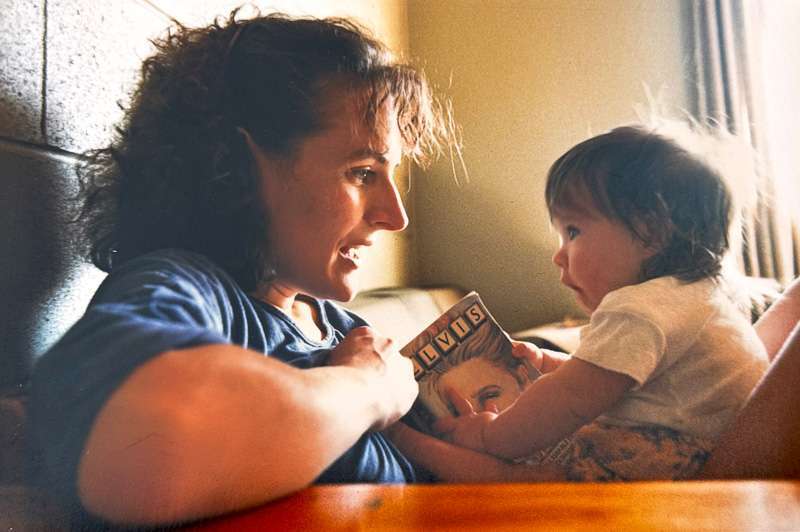
BOOKS VS SCREENS: WHAT THE SCIENCE SHOWS
“There’s been incredible research done in universities in the States, looking at what’s happening in young people’s brains when they’re being read to and are following along with the pictures and words. It goes bananas up there, it’s like a circus,” Kate says.
Kate refers to neurological studies showing that, when we read a book, the brain lights up with activity. Synapses go off like fireworks and new neural pathways form and grow. In stark contrast, when we watch something on a screen, this brain activity stops.
The challenge, Kate says, is “given all that knowledge and the times that we live in,
reading is absolutely crucial to the development of critical thinking, especially now that we’re about to experience the AI tsunami. We know what’s happening with brain development and brain activity. When you read, your brain is doing the work. With screens, nothing much is happening in the brain. It’s a passive act; the brain is being hired out. It atrophies.”
Her message? Reverse the decline in reading books. More precisely, the decline in “sustained reading”, the type that develops critical thinking, empathy, imagination, and more. Why? Because our well-being depends upon it.
“There is a lot of evidence showing that reading is really important for well-being across a lifetime,” Kate says. “Because when you read, you are forced to walk in other people’s shoes. You’re being put in the realm of ‘other’, which, of course, inevitably develops empathy.
Even between e-books and physical books, there are noticeable differences. Early research suggests comprehension and memory may be stronger with printed books. “There’s something about tactility, about tracking through a book, flipping back and forth – the body and brain participate in the reading,” she explains. “But of course, we should support reading in all forms. E-readers, phones – whatever keeps people reading.”
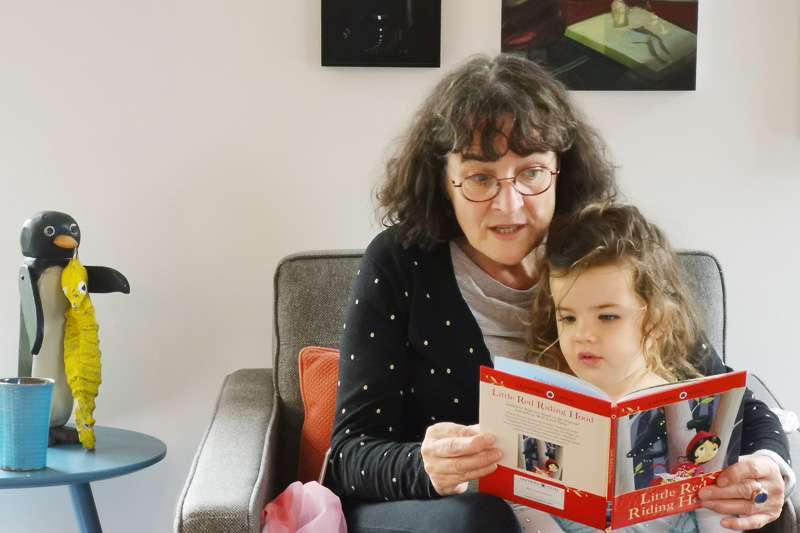
BUILD A NATION OF READERS
Kate is adamant: building a nation of readers is a collective effort. “It involves parents reading in the home. Libraries. Schools. Communities. Local councils.” She laments that not all New Zealand schools have libraries, let alone staffed ones – a consequence, she says, of leaving resource allocation up to individual boards and management. “The result is uneven access.”
Access is also an issue at home. “It’s easy to tell parents to read to their children, but what if English isn’t their first language? What if there are no books in the house? What if they can’t get to the library?” Even among the middle class, reading is declining. “We’ve all just sort of stood by while our kids became addicted to phones,” Kate says. “This isn’t just about equity, this is happening across society.”
That’s why her mission is broad – not just to reach children and schools, but to re-engage adults, families, and communities in the shared act of reading. “We need a collective model,” she says, “where reading is visible, valued, and celebrated.”
TURNING THE PAGE
Soon, Kate will return home to Christchurch to be part of the city’s annual WORD Festival this month. Her duties include chairing a session about the Eden Hore Central Otago tractor shed-turned-couture museum as well as being a panellist for Tom Sainsbury’s Reading Enthusiasts’ Soiree.
The city of her birth, her heart and soul, is once again her base after 27 years living away in Wellington. She and her partner, photographer Bruce Foster, relocated back to Christchurch in January, buying a small house in South Brighton. “It’s just wonderful,” she says. “I wake up every day and look at the Port Hills, we’re five minutes from the beach, and I feel like I’ve died and gone to heaven.”
Despite being away for so long, all of Kate’s writing – novels, essays, and creative non-fiction – is grounded in Christchurch, the landscape that continues to spark her imagination.
Whether in Perth cuddling her granddaughters or in Christchurch writing, advocating, and reading, Kate is living her mission. “It’s not just about books,” she says. “It’s about what kind of country we want to be.”
Catch Kate at the WORD Christchurch Festival. Running from 27 to 31 August, book tickets at wordchristchurch.co.nz



